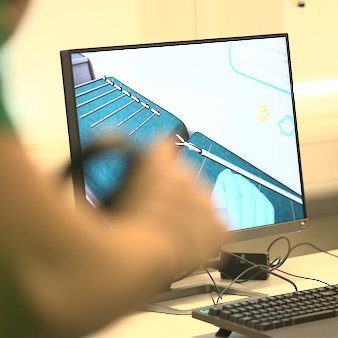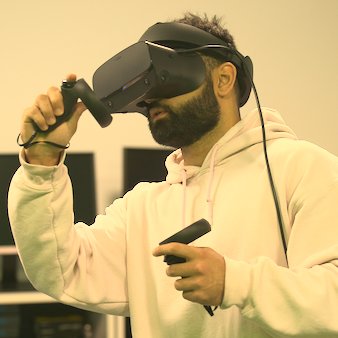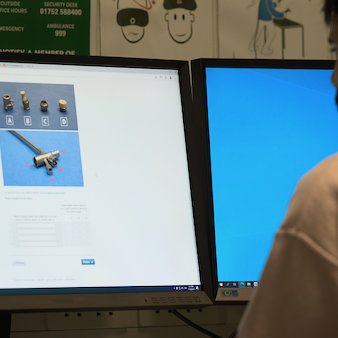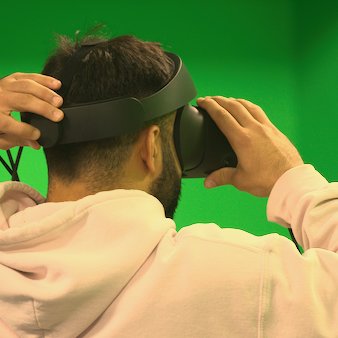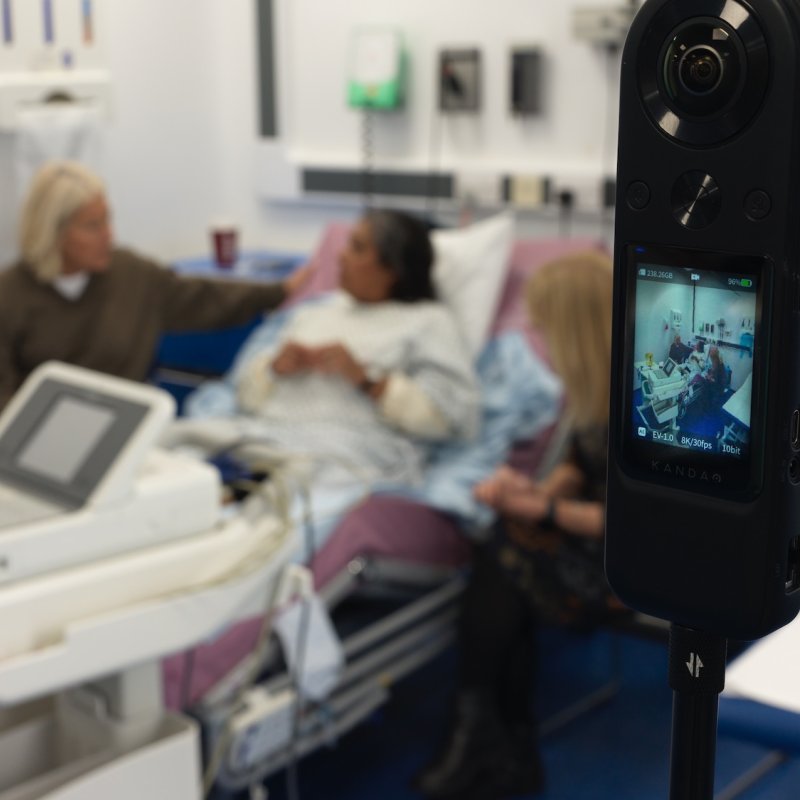Contact Us
+44 20 32897141 / 1 Pickle Mews, London, SW9 0FJ
The Client & Concept
We were brought in to collaborate with the University of Plymouth by Professor Sheena Asthana, who is the Director of Plymouth Institute of Health and Care Research. To add to this, we were supported in our research by Dr Paul Watson, Teaching and Research Associate, who specialises in game design and investigates how game technologies can be applied beyond entertainment.
The university has a dedicated Centre for Health Technology that brings together academics and builds partnerships with local health and care systems. Their mission is to address digital health inequalities, taking a whole system approach, considering not just the co-design and development of cutting-edge technology; but the barriers and enablers to its translation in a complex healthcare landscape.
Why Medical VR Training?
As those in the sector will be aware, there is mounting pressure on medical education, with a growing need for well-trained clinicians. From a global perspective, the WHO estimates a projected shortfall of 10 million health workers by 2030. For the UK, it is widely known that the NHS is suffering from staff shortages, with 121,000 full-time equivalent vacancies (Feb 2024). And it’s not just the high level of vacancies that is a concern, higher rates of those leaving the industry means that the makeup of the workforce is becoming more junior and less experienced. Over the past five years, the proportion of doctors at the most junior levels (core training, Foundation Year 1 and Foundation Year 2) increased from 21% to 26%. This means the remaining experienced staff are spending more time training, resulting in less time spent with patients.
All of these circumstances mean it’s more important than ever to build medical training programmes that can be scaled across large groups whilst still building the critical knowledge retention that is required to deliver procedural activities.
The Brief
The team at the University of Plymouth were keen to spark a partnership with ExR to validate virtual reality (VR) technology. In particular, they looked to explore the learning outcomes and use of VR for paediatric bronchoscopy training. They sought a more nuanced view of VR medical training beyond its knowledge transfer capability, and chose to integrate HCI and games into an assessment to understand if VR was a substantial format for procedural tool training.
To provide a detailed academic review of the potential of VR, it was decided the content should apply FullVR to build a fully immersive VR experience that would be accessed via a headset to ensure true immersion.
The learning outcomes for this content was as follows:
- Learn to name the individual pieces of equipment in the paediatric rigid bronchoscopy set
- Assemble the bronchoscope and Hopkins rod
- Assemble the bronchoscope and optical forceps
“I would describe the virtual reality bronchoscope training as symbiotic. ExR has some really well-developed content in virtual reality medical training. Such content is complex and testing helps to inform the current strengths and challenges that need to be addressed. As a researcher, I was looking for good virtual reality content to examine around teaching, learning, and interaction within a virtual space. There was an opportunity for ExR and myself to gain further knowledge into the implementation of their content and the theory that supports it. My aim for this project was to combine assessments of usability and experience to understand where such content could fit within an educational pipeline.”
Paul Watson
Building Medical Equipment Training
The content honed in on the assembly of the apparatus but did not cover the surgical application of the bronchoscopy. The university’s ambition for the content was to analyse the competency of students assembling the apparatus prior to watching the immersive training film and compare it to afterwards.
Collaboration is a central value to ExR and this was applied throughout every step of the project, but was particularly fundamental in reviewing and guiding updates of the VR simulation. Together, we established a set of gameplay and UI improvements that would guide users through the assembly of the tool for practice before testing to understand how much they can recall without guidance.
Updates to the user interface included colouring and formatting of in-headset guide elements, the addition of high definition voice guides, and the introduction of ambient and interactive object sound effects.
VR for Academia
University of Plymouth rolled out the medical VR training across a sample group of their students, with all participants either studying Bachelor of Medicine or Bachelor of Surgery. The sample spanned all years of the degree (1-5) but with a bias towards second-year students (10/30).
The results of this study demonstrated that after every test taken, the students showcased higher levels of accuracy in equipment knowledge post VR training compared to pre.
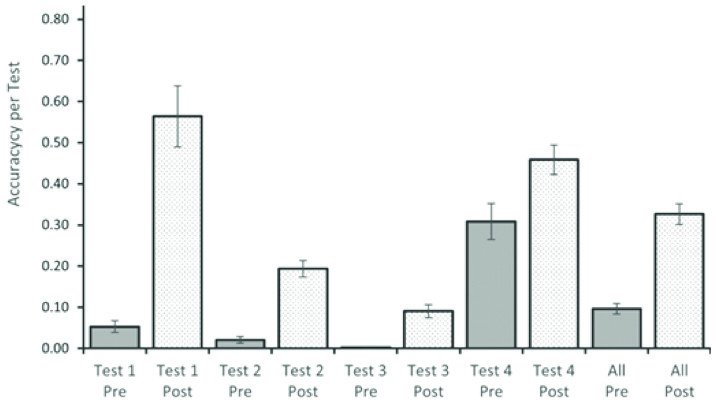 (a) Knowledge Test 1-4: Mean accuracy for knowledge tests delivered before & after training.
(a) Knowledge Test 1-4: Mean accuracy for knowledge tests delivered before & after training.
A Collaborative Approach to VR Training
This partnership with the University of Plymouth was our first formal academic collaboration and it gave us unparalleled evidence of the value of VR for building technical competencies in medical equipment assembly. Not to mention their feedback informed our UI design and gameplay updates moving forward.
“From a research perspective, the outcomes were met. We were able to see how medical students reacted to this type of training in terms of usability and experience This work was published and can lead to further studies that explore virtual reality medical training. As part of this process, we were able to advise further development for VR training. The most unique aspect of ExR is good quality content that is free to use in research projects”
Paul Watston
Read the published report.
Co-creation is the foundation of our solution, as we pursue developing content that is truly useful to medical professionals and leveraging academic expertise helps us to enhance the outcome of our VR training modules. We welcome any independent study of our content and look to improve iteratively based on the guidance provided by academic leads. The data delivered by the University of Plymouth has enabled us to open conversation with a national training programme in ENT to explore how we can roll this type of training out at national scale.
ExR prides itself on being the only free, fully open VR medical training platform. If you are interested in collaborating with ExR to simulate any medical scenario with VR training, then speak to our team.
Want to join in?
Please type us a message.
